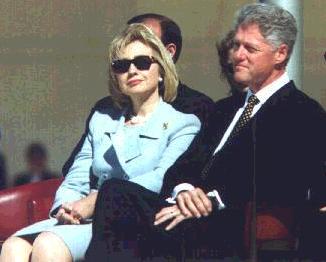Michael Fumento
Factual · Powerful · Original · Iconoclastic
Women's Magazines are Pink Propaganda
January 01, 1996 · Michael Fumento · MediaI don’t know about you, but when I want a real scare I don’t pick up a Stephen King novel or rent a movie like Curse of the Demon. No, when I want a real bone-chilling I go to my neighborhood news stand and look at the covers of the women’s and family magazines.
Where else, I ask you, can you find such headlines plastered over the face of Kathie Lee Gifford or Claudia Schiffer: "Schools That Make Kids Sick," "The Foods That Are Poisoning Your Child," "Are Pesticides Poisoning Our Children?" "The Woman Who Stole 5,000 Babies," "Stranger Danger," "The Infidelity Epidemic," and "EPA Warning: How the Sun Can Kill Your Kids."
My favorite? Hmm . . . That would probably have to be: "Shocking Report: Babysitters who Maim and Kill." Boy, that’ll keep a parent up at night, won’t it? Or at least keep the parent from ever going out again until the children are old enough to stay home alone.

To Family Circle, every house is haunted by threats to your kids.
Professor John Graham of the Harvard Center for Risk Analysis did a poll in which he found that women were far more likely to buy into the latest fad scare than were men. While he wasn’t sure of the reason, I’ll bet these magazines have something to do with it.
The Washington, D.C. watchdog groups Consumer Alert and Media Research Center appear to agree. Indeed, their recent study, "Women’s Magazine’s: A Liberal Pipeline to Soccer Moms," found that in addition to lipstick and tampons, what these magazines specialize in selling is fear — and the notion that Big Government is almost always the solution.
Looking at a year of offerings from 13 such magazines, with a combined circulation of over 66 million, the organizations found most stories on science and risk issues served no other purpose than scaring the skirts off readers — outnumbering balanced articles by two-to-one.
Among them:
- Family Circle in last August’s article, "Danger in the House," warned of a "chemical invasion" from cleaning solutions and garden pesticides. The evidence? Well, there’s this spooky anecdote about a mother who blamed a neighbor’s pesticide spraying for her daughters’ stomach aches and vomiting. That’s enough for you, isn’t it? After all, mother knows best.
- McCall’s and Better Homes & Gardens warned of pesticide residues in baby food. The McCall’s article warned that babies and children are more sensitive to pesticides than adults (a supposition, not a fact), but never let readers know that government sets pesticide standards to account for individuals who are 1,000 times more sensitive than average.
- Articles in Mademoiselle, Glamour, and Weight Watchers reported the alleged link between chemicals and breast cancer, without noting that the largest study ever conducted on the subject looked at two of the most often-mentioned culprits — the insecticide DDT and the insulating liquid PCB — and found no connections.
- Weight Watchers even condemned scientific studies that pointed to such causes as genetics and diet as sexist because they "suggested it was a woman’s fault if she developed breast cancer." Next thing you know, even saying the words "breast cancer" will be politically incorrect because it suggests that it’s a woman’s fault that she has breasts. And what all this has to do with watching your weight I just can’t figure out.
Once these magazines have you hyperventilating into a paper bag, they then spring upon you the solution to these terrible problems. Yes, it’s Uncle Sam, or more specifically Uncle Bill and Aunt Hillary.

Bill and Hillary, the answer to all our fears — except for fear about Bill and Hillary.
The Consumer Alert/Media Research Center survey found 115 articles with positive portrayals of government activism and/or calls for more activism. There were only 18 negative portrayals or calls for less government action. Of these, 23 stories also asked readers to lobby government officials on behalf of expanded government programs.
Having made their readers feel bad about the way mankind is treating the environment (when you’re describing something bad, like polluting, using "mankind" isn’t sexist), they then go on to promote feel-good environmentalism.
Never mind that even the New York Times magazine recently did a cover article affirming what free-market environmentalists have been saying for over a decade — that most recycling is a waste of time, energy, and money. Out of the 15 articles in the women’s magazines on recycling, each and every one was solidly in favor of it. (Actually, probably the last 14 articles were simply recycled versions of the first one.)
"Story after story," in these magazines, says Consumer Alert Executive Director Fran Smith, "outlines a problem and proposes that a new law be enacted and that women should lobby for it."
Not for nothing did the Clinton team label its re-election campaign aimed at young mothers and women in general as its "Redbook strategy." The Redbooks of the nation had already paved the way for his second term.
